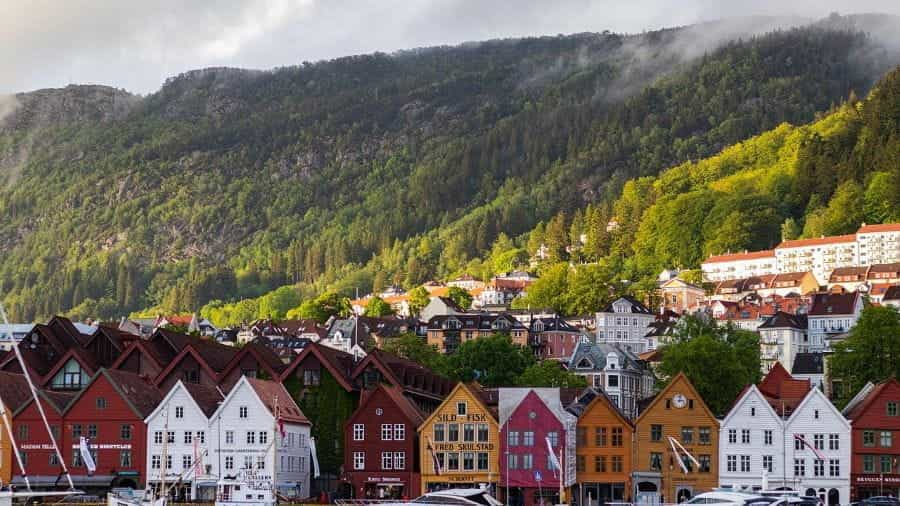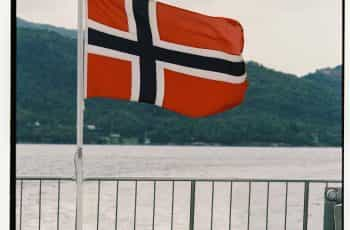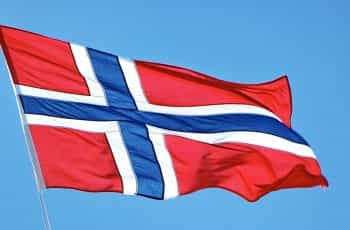Norway’s Gambling Act Sent to European Commission
Norway’s recent endeavors to consolidate its gambling laws into one piece of legislation has led to a unified bill being submitted to the European Commission. The Ministry of Culture in the country decided in June of this year that the nation should have concise and consistent gambling legislation that would also maintain the gambling monopolies that are held by Norsk Tipping and Norsk Riksoto in Norway at present.

The European Commission will now decide whether to ratify the proposals set out by the Ministry of Culture in Norway. Until the Commission has ruled on the issue the measures will be subject to a standstill period until November. ©Randgruppe/Pixabay
The Ministry of Culture’s plan is to condense the current laws, such as the Lottery Act, the Gambling Act, and the Totaliser Act into one streamlined piece of legislation. These new laws would then apply to the whole of the Norwegian Market.
The government has planned to consult on these matters until the 29th of September 2020. During these consultations, the Ministry of Culture has invited many of the stakeholders in the market as well as experts and professionals from the industry to give their opinion on the new regulations and to suggest changes as and when they are necessary.
Ministers involved in the writing of the bill have outlined the aims of the government when it comes to restructuring the gambling legislation in the country. It is hoped that this consolidation of laws will aid the government with promoting new responsible gambling measures as well as improving those that are already in place.
The Ministry is also hopeful that the reformations to the gambling laws in the country will allow it to successfully reduce the impact of the negative aspects of gambling on those that are most vulnerable to addictive tendencies in Norway.
The government has also been careful to ensure that the positive elements of a regulated gambling market can be maintained even with the changes to the laws. The Ministry wants to keep the current standards of voluntary and non-profit donations and charitable drives that are funded by the revenue of the gambling industry in Norway. These could be streamlined by the implementation of the new bill as it would improve the efficiency of the state-run operators in these endeavors.
One of the key areas of the new bill is a measure to maintain the gambling monopolies of Norsk Tipping and Norsk Rikstoto. These state-owned operators have historically had the exclusive right to offer gambling services to the public in Norway. The new legislation would not change this and will exert strict controls on these operators, such as giving the government the power to make decisions about the board members for the businesses.
Additionally, the bill includes a clause that will see the Ministry of Culture take control of all elements in the regulated gambling market. This will make the government body responsible for all the rules pertaining to the market, including horse racing which was previously regulated by the Ministry of Agriculture and Food.
The condensed legislation on gambling in Norway will still prohibit foreign operators from offering gambling services in Norway. In addition to this, the ban on remote operators from working in the market in the country will also be upheld.
It had previously been suggested by the Norwegian Industry Association for Online Gambling that these laws were archaic and should, therefore, be removed from any reformation to the gambling landscape in the country. Removing these laws would result in the breakdown of gambling monopolies in Norway, which have been called for by many due to the high incidence of gambling addiction in recent years.
This is not to say that the monopolies won’t be affected by the changes to gambling laws. There will be changes to how these operators are permitted to market their services in the country. The new legislation will be designed to make sure that these operators won’t target their adverts at underage people or at those who have previously self-excluded from gambling.
On top of this, Norsk Tipping and Norsk Rikstoto will be expected to carry out risk assessments to determine the areas of their businesses that are causing the most risk to players. These will help these operators to ensure that their business practices are safe and sustainable. The Ministry of Culture also hopes that such requirements will help reduce the amount of illegal activity within the market as well as organized crime.
There will also be provisions to increase the power that is held by the regulator in the country, Lotteri-og Stiftelsestilsynet. The government hopes this will increase the safety of gambling in the country as well as the rates of channelization of betting in Norway. The regulator will have the power to make internet service providers tell their customers when they are being targeted with gambling ads from offshore operators.
Plans Submitted to the European Commission
Since outlining its plans to draft a new gambling bill and hold a consultation with the industry on its proposed plans, the Norwegian government has submitted the legislation to the European Commission which it hopes will ratify the laws. This submission means that the laws will now be subject to a standstill period until the 13th of November.
The government believes that its proposals have successfully managed to fulfill the desired outcomes that were discussed in the initial consultation for the bill. In this regard, the bill will hopefully help the Ministry of Culture to reduce the amount of problem gambling in Norway and to reduce the impact of criminal activity on the industry.
Since its inception, the bill has not changed a great deal as a result of the consultations with industry professionals. This is not particularly surprising as the bill was always intended to improve the harmony of gambling legislation to give regulators more power to coherently approach the issues that are thrown up by gambling in Norway.
This means that the landscape of the industry will not be altered massively should the laws be ratified by the European Commission. This will come as a disappointment to some due to the calls for widespread reform of the gambling industry in the country.
There have been recent calls for the country to remove its policy of giving the exclusive rights to offer gambling services to just two companies. This is due to the high incidence of gambling addiction in the country, which also seems to be moving in a negative direction. It has been suggested by studies that the number of individuals in Norway who are either addicted to gambling or at risk of developing addictions is on the rise and is not showing signs of slowing down.
Critics believe this is the fault of a lack of competition in the market and, as such, have suggested that allowing foreign operators into the market will help to implement the changes to the industry that would reduce the amount of problem gambling in Norway.



